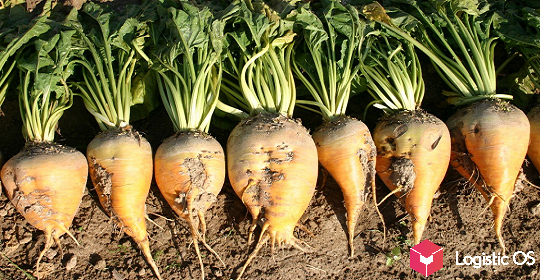Some Altai buckwheat producers have suspended their production.
The reason is simple: no sales.
From June 5 to August 31, the Russian government imposed a ban on the export of buckwheat, coarse cereals from it and buckwheat grain.
Like other restrictive measures on the export of agricultural products, the ban was introduced in order to contain prices in the domestic market and maintain a certain volume inside the country.
Due to the imposed export ban, Altai enterprises (according to experts’ estimates about 40%) have accumulated in warehouses a monthly production rate for domestic markets.
Altai Territory is one of the largest producers of «folk» cereals. Share in all-Russian production — 40-50%
In 2020, the buckwheat harvest in the region amounted to 500 thousand tons — approximately at the level of 2019.
The enterprises of the Altai Territory ship about 180 wagons of buckwheat per month. A third of them are exported: to Belarus, Tajikistan, Azerbaijan, Uzbekistan.
After the imposed restrictive measures, it turns out that 60 planned wagons for June and July remained, and retailers simply do not need such a quantity of cereals.
It turns out that 120 wagons not sent for export have already closed production in August, which has not yet begun.
Is it really necessary to ban the export of a product that is not in high demand abroad?
In 2020, Russia harvested 892 thousand tons of buckwheat (13% more than in 2019).
104 thousand tons have been exported since the beginning of the 2020/21 season (data as of May 2021). In the 2019/20 season, only 40 thousand tons were exported.
Russia’s consumption is about 400 thousand tons.
Indeed, since the beginning of 2021, buckwheat prices have been growing, and not only in Russia. But the records in 2011, when the price reached 87.5 thousand rubles per ton, or in 2016 — 80 thousand rubles per ton, is still far away.
The current situation has already led to a decrease in purchase prices from agricultural producers from 45 to 38 thousand rubles per ton.
At this price, the cost of buckwheat on the counter should be around 70-80 rubles.
It so happened that the ban on the export of buckwheat came out almost simultaneously with the statement of some producers about a possible increase in prices by 10% and the simultaneous statement of the Ministry of Agriculture that there is no shortage of buckwheat.
Buckwheat is, of course, a traditional product for Russians, but not basic, like bread or chicken, for example.
And there is no shortage of buckwheat in stores.
A compensatory rise in prices is simply impossible to avoid: the cost of fertilizers, equipment and spare parts, the cost of transportation and electricity supply are growing.

